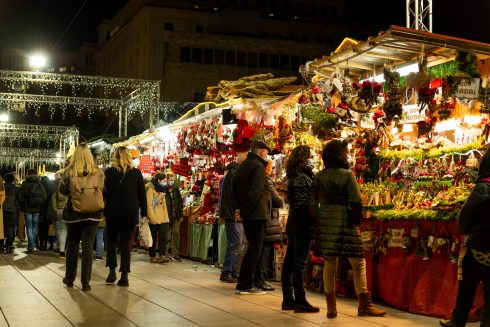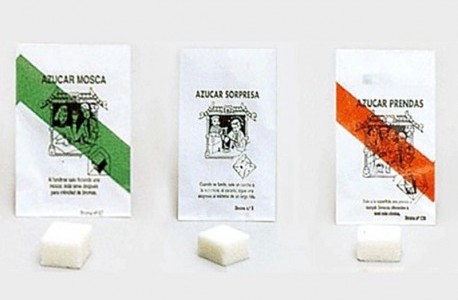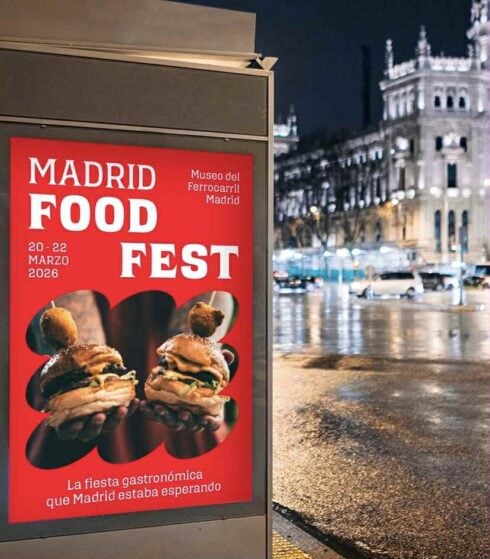EVERYONE in Spain will be watching their backs this December 28 for the annual Dia de Los Santos Inocentes (Day of the Innocent Saints) for this is the Spanish equivalent of April Fools’ Day.
For hundreds of years churchgoers have held mass and sung villancicos (traditional carols) in memory of the innocent children of Bethlehem slaughtered in Herodotus’ bloody search for Jesus.
Present-day traditions have thankfully transformed Dia de los Santos Inocentes into a more benign affair among Spanish speaking countries.
Everyone gets involved, from children who buy fake fingers or spicy sweets at Christmas markets, to coworkers playing practical jokes on colleagues and newspapers pranking the nation with fake news stories.
If you live in Spain, are visiting Spain, or have Spanish-speaking friends and family you’re bound to find yourself victim of a fooling.
Here are 21 pranks to watch out for this December 28.

1. Prank calls
Spanish app inventors have made prank calls into an artform.
Many of them offer a range of predetermined voices, actors and issues, ranging from a neighbour angry over doggy doo-doo, a policeman threatening a fine or – for the really cruel – a prank call that someone’s won the lottery.
The apps often let you hide your number or show a fake number, as well as fake pictures and names.
They’re set up to pause when the victim starts talking, and the prerecorded voice can drag the conversation out for minutes.
Most of these apps let the prankster record your conversation, so all your friends can have a laugh at your expense.

2. Coin prank
This classic prank is common across the world, and even more so in Spain around Dia de los Santos Inocentes.
The beauty of this trick is in its simplicity – you just need glue and a coin – before you can sit back and enjoy the action, usually with a camera on hand.
If you think you’re about to get lucky with a 1 or 2 euro coin this December 28, think again.

3. Spicy sweets
Christmas markets are a major draw across Spain from the end of November and often last until the Dia de los Reyes Magos (Epiphany) on January 6.
Alongside figures to adorn your nativity scene and Spanish delicacies, Christmas market stalls will commonly sell practical jokes and pranks to fool your friends on December 28.
One of the most popular pranks are innocent-looking sweets packed with hot spice or wasabi.
If anyone offers you a surprise sweet, be warned, it’s not going to be what you imagined.

4. Mosquito sugar
Another common market stall prank is the azucar mosca (fly sugar).
This unassuming sugar cube releases a hidden fake fly when melted, making you take a second glance in disgust at your tea or coffee.
If anyone seems over eager to serve you a hot drink this December 28, think twice.
5. Sticky rats
It’s not just elephants that are afraid of mice and rats, but most people will shriek when finding a furry friend in their kitchen or under their desk.
You can find many fake animals like rats, mice or spiders at sale at Christmas markets across Spain.
If you find one in your kitchen or in the hallway, don’t panic, you’ve just been pranked.
6. Fake turds
Fake turds are a common prank in many countries, but Spain takes things a little further by adding special sprays that make the turds look and smell the part.
An unpleasant prank, nonetheless one to watch out for.

7. Fake hands
Bloody fingers are a common joke across the world, but in Spain you can even find whole hands on sale.
It can cause quite a shock when shaking your coworkers’ hand and you pull it clean off.
One of you is bound to scream, so pay close attention to any eager handshakers on December 28.
8. Fake news
It’s common for newspapers and TV channels to make up fake news and pass it off as true on Dia de los Santos Inocentes.
Sometimes these might be obvious – like when Real Madrid fan and journalist Tomas Roncero posted fake images of rival Atletico Madrid winning the Champions League final. (Atletico have never won the Champions League, compared to Madrid’s record 13 wins.)
Some newspapers like to put a darker twist, joking 18 to 29-year-olds will have to do mandatory military service in the next year.
Big businesses even involved like Ikea in 2015 who announced building a massive outlet on top of a popular square in Granada.
Whether you’re turning on the news or reading the paper on December 28, be prepared to say ‘what?!’
9. Sugar for salt
Not all pranks come from jokes or media, sometimes you’ll be a victim in your own family or workplace.
A common prank is something swapping the sugar for salt. It will give you an unpleasant surprise when sipping your salty coffee or tea.
Don’t trust anyone offering to make a nice hot drink, especially your kids.
10. Time travelling
Another simple trick you can play at home is to change the time on the clocks.
This can be trickier with the advent of mobile phones, but not impossible.
If you find your alarm going off at some ungodly hour – or indeed in the middle of the day – you’ve be pranked.

11. Broken glass
A common prank at high-street shops in Spain involves sneaky staff making you think the window’s have been smashed.
All it needs is a bar of white soap or chalk, and drawing lines on the glass that mimic the look of a broken window.
So long as you calm you boss or your dad down before they phone the police, it’s harmless fun that can be washed off.
Even if you don’t have access to soap or a window, there are many apps in Spain that make it look like your phone’s been broken.
If you have young people or tech-savvy family around and find your phone broken, don’t get angry straight away.
12. El Monigote
Monigote translates as rag doll in Spain, but paper cut-out stick figures have become a central part of Dia de los Santos Inocentes pranks.
Many Christmas markets will sell paper doll figures to stick on the back of an unsuspecting victim, but there are endless options to write rude or amusing remarks on paper – all you need is a bit of tape and a moment of distraction.
If you find your presence causes laughter on the street, in shops or at home, check your back.
Someone may have given you an un expected monigote.
READ MORE:
- Magical markets to visit in Spain this Christmas
- ¡Feliz Navidad! These are the strangest Christmas traditions celebrated in Spain
- Huge egg and flour fight in Alicante to celebrate Day of the Innocents
Click here to read more Spain News from The Olive Press.








